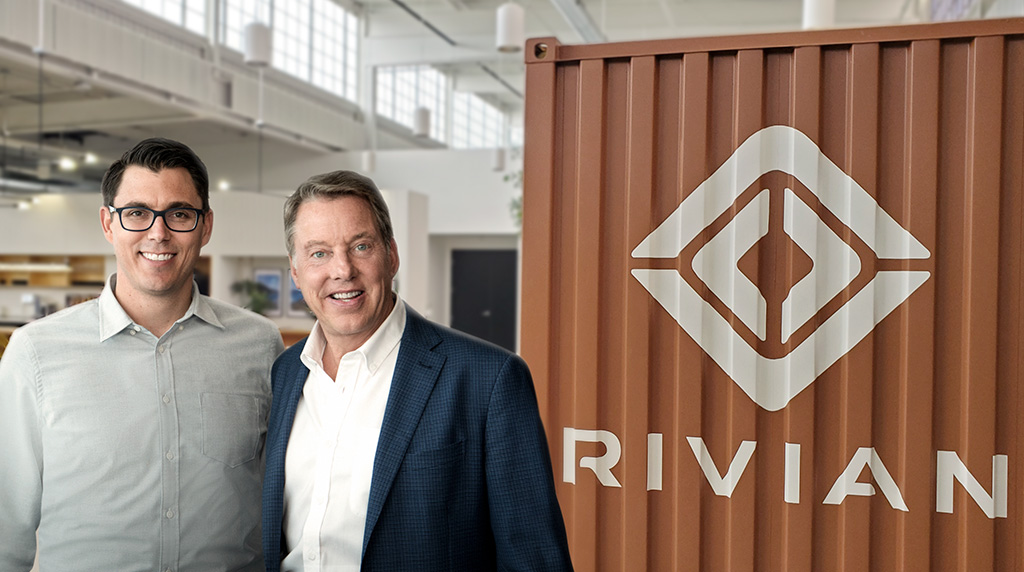The sell-off released a large slice of Rivian’s shares that formed the basis for its public float in November last year.
One of its biggest investors was Ford which last week sold eight-million shares at $US22.78 ($A32.94) – a 70 per cent drop on the $US78 ($A113) purchase price – which was the prime reason behind Ford last week declaring a $US3.1 billion ($A4.5b) quarterly loss. The company has last 80 per cent of its share value since the start of this year.
Shares were $US172.01 ($A248.71) on November 16, 2021 – a week after its public listing – but have slid since, reaching its low of $US20.60 ($A29.80) this week.
Rivian also posted a quarterly loss. It reported a loss of $US1.59 billion ($A2.3b) for the first quarter – compared with $US144 million ($A208m) previously as it burned cash trying to extinguish component shortgages, supply chain holdups and production constraints.
And in more bad news for the company, it is having to recall the first 500 pick-ups and SUVs it has made following discovery of an error in seat airbag calibrations that potentially endanger the lives of infants or children; a particularly sensitive recall item for a company attempting to establish a new brand in a completely new and important auto market.
On the upside, Rivian is delivering its R1T pickup and R1S SUV to buyers and its EDV commercial electric van to client Amazon.
It has confirmed that it is on target to build 25,000 vehicles in 2022 and announced that it had future expectations to have a 10 per cent market share of the EV ute and SUV market.
But in its report to shareholders, it cautioned that supply chain constraints on semiconductors and other components served as a significant bottleneck.
“Since March 31, 2022, we have been forced to stop production for longer periods than anticipated, resulting in approximately a quarter of the planned production time being lost due to supplier constraints,” the company said.
Rivian had a float of about 182.5 million shares as of April 11, according to Bloomberg data. Amazon owns about 17.7 per cent of Rivian, while Ford owns 11.4 per cent.
Ford, which invested $US1.2 billion ($A1.74b) in Rivian, has not commented about its investment in Rivian and is coy about comparing the Rivian ute with its own EV ute, the F150 Lightning.
Ford CEO Jim Farley told Bloomberg that “we’ll look at everything” when previously asked about the (then) rumoured sale of Rivian stock and added “Everything is on the table.”
“We haven’t been/aren’t presently commenting on Rivian,” a Ford spokesman told Bloomberg this week in an emailed statement.
Amazon also declined to comment on its plans but is not expected to sell its Rivian stock given it has an order of 100,000 Rivian electric delivery vehicles.
Rivian made 2553 vehicles and delivered 1227 in the first quarter, which analysts said means it must increase production 10-fold for the rest of the year to meet its target.
Its output compares with the 909 vehicles it delivered in the fourth quarter last year, its first as a public company.
Rivian said demand is outstripping supply, with more than 90,000 orders in the US and Canada for its battery-electric R1T pickup truck and 10,000 for the R1S SUV.
To speed up the ordering and production, it will launch a new reservations system that doesn’t allow customers to configure their vehicle until closer to the delivery date.
Meanwhile, the company is expected to break ground on a second factory in Georgia in the second half of this year to make models based on its future R2 platform. The factory is valued at $US5 billion ($A7.2b).
This will be “a more accessibly-priced, mid-size SUV targeting global markets,” the company said of the new vehicle.
It also said that its top priority is to increase production at its factory in Normal, Illinois, where it plans to introduce a second shift from July.
When commissioned, the two factories will have a projected annual capacity of 600,000 vehicles.
Rivian was the largest US IPO of 2021, hitting the public arena when investors were thirsty for EV companies.
The EV trend was being pushed by governments and policy makers to move toward clean transportation options. Enthusiasm peaked within days of its public debut, driving its market capitalisation to more than $US150 billion ($A217b).
Since then, however, the stock has cratered from its November highs to around $US20 ($A29) as market sentiment soured on riskier growth stocks, with rising inflation and Federal Reserve interest-rate hikes increasing the lure of haven assets.
In addition, supply-chain shortages and soaring raw material costs have crippled new EV companies, forcing them to lower production targets thus making their valuations look even more expensive.
By Neil Dowling















 Read More: Related articles
Read More: Related articles

